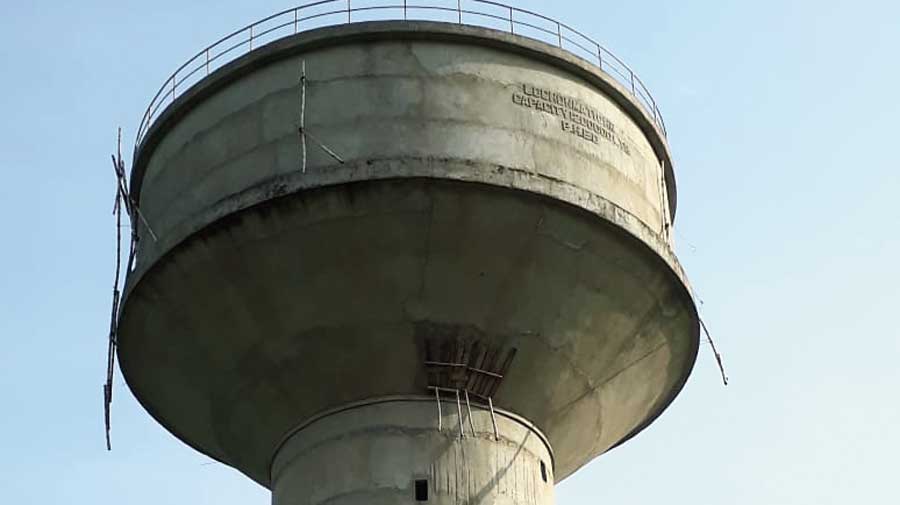Hundreds of taps in Salt Lake homes went dry on Saturday morning because water supply has dipped with the rise in temperature.
Residents of sectors I, II and III alleged that supply had been erratic since the onset of summer and there wasn’t enough water for basic use.
Sanjib Ghosh, 48, a resident of ED Block, said his family had been doing with “very little water for the past few days”.
“On Saturday, there was no water supply. Our water supply is erratic at best for the past several days. Our water tank, like many of my neighbours, has remained completely dry on Saturday,” he said.
Water crisis in summer is not new to the township. A water supply department engineer blamed the residents’ usage of filtered water to wash multiple vehicles and the use of pipes to wash driveways for the scarcity.
Salt Lake needs around 15 million gallons of water every day. Earlier, the Tallah-Palta network used to supply around eight million gallons (MGD). Now, the township gets 10 MGD from the New Town water treatment plant, while the rest is augmented by using groundwater supply.
An official of the public health engineering department (PHED), which looks after water supply in Salt Lake and adjoining areas, said that the groundwater table had gone down by several feet.
“Ten years ago, we would hit the groundwater at 30ft. Now, we have to sink pipes more than 50ft to reach the table,” the PHED engineer said.
Ten years ago, the township’s requirement was seven MGD a day, he said.
The township’s water supply lines are old and some pipes have blocks of 1.5-inch diameter.
“The pipes haven’t been cleaned this year. Since the pipelines in most blocks are as old as the township, they often get clogged with iron deposits,” a civic official said.
To add to the problem, a joint in the main water supply line near the Amul Island, adjacent to the Salt Lake stadium, has been leaking for the past few days.
It had been repaired by engineers of the Bidhannagar Municipal Corporation but has started leaking again.
Water tankers can be seen criss-crossing the township throughout the day.
The Salt Lake Sanskritik Sansad operates several such water tankers. This summer has been particularly busy, one of their office-bearers, Sanjay Poddar, said.
“We have been flooded with calls to deliver water all over the township. Our trucks make at least 15 trips on average every day,” he said.
Each of the organisation’s tankers can carry 6,000 litres of water. Residents have to shell out Rs 900 a tanker.
The Bidhannagar Municipal Corporation has 15 water tankers and the charges vary from Rs 300 to Rs 1,000, depending on the capacity.
Tapan Choudhury, a resident of FD Block in Sector III, said the water supply had “dipped drastically”.
“The situation is so bad that we have been storing water in containers,” he said.
Soham Chakraborty, another ED Block resident, said he had to hire water tankers at least twice. “They charged me Rs 400 each time,” he said.
Residents of Karunamoyee Housing Estate said their tanks had been dry for at least a couple of days at a stretch.
“We asked our pump operator and he said supply was scant,” another resident said.
An engineer of the Bidhannagar Municipal Corporation’s water supply department who is in charge of the water supply in the township said that the civic body could do little. “What can we do if supply dips?”
The engineer also blamed the township residents for the water problem, saying they use potable water to wash cars and utensils.











